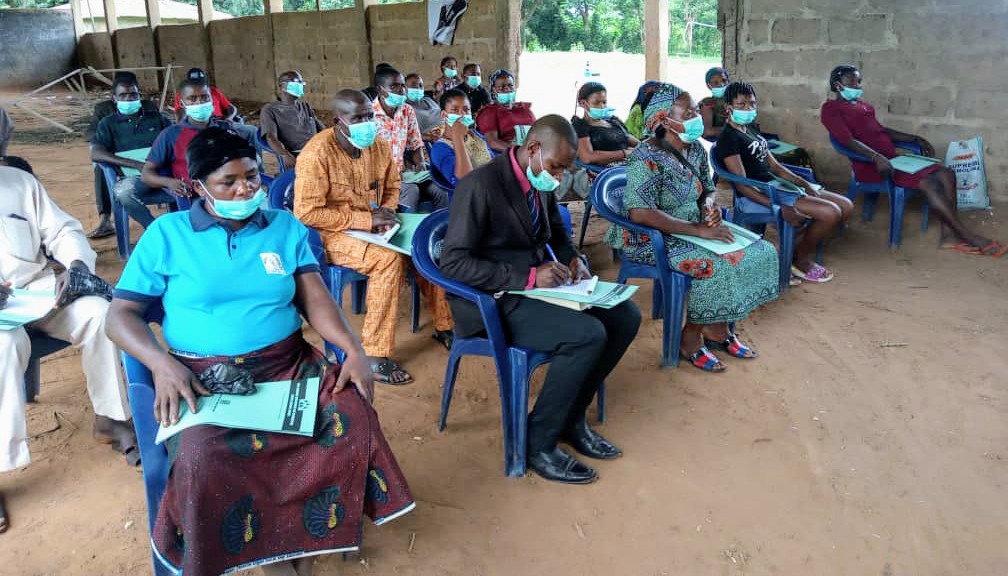UNFPA, CIRDDOC Lauds Ebonyi Communities For Ending FGM
By Nkechi Oginyi
UNFPA, and CIRDDOC Nigeria, Friday lauded Ebonyi state commitment towards ending FGM.
It urged communities in the state to always report the perpetrators of the phenomenon in their localities to appropriate quarters to stop the practice the way the killing of twins was stopped in the past.
They made the call during a program on FGM Elimination organized by CIRDDOC Nigeria with support from UNFPA called Accelerating Change, Consensus Building meeting on FGM elimination.
A Total of eleven communities participated in the consensus-building program held at community primary school Ogbala Ishieke, Ebonyi local government of the state.
Onyinye Okah, Executive Secretary CIRDDOC Nigeria said “we are organizing this consensus meeting on FGM abandonment with support from the United Nations population fund. The main objective of this consensus building is to get these communities that are here to on their own publicly accept the abandonment of female genital mutilation.
” in this year 2021, we have been carrying out series of activities in this Ebonyi starting from May it is believed that now they know the consequences of female genital mutilation, we are not coercing them, we are not forcing them but they have agreed to publicly declare the abandonment of FGM.
The CIRDDOC Secretary, called on community leaders to bring up a by-law to enforce #end the practice adding that dialogue and more sensitization could help to stop the practice which may still be taking place in a few of the communities in the hinterland.
CIRDDOC decried that lack of sustainability on the government side is affecting the implementation of campaigns against FGM and other gender-based violence but urged the communities not to relent rather continue monitoring and community sensitization as it is for their good.
“On the sustainability plan, we are encouraging the community leaders to support those that are willing to work because if those that are working have the support of the community leaders they will achieve a good result.
She emphasized that sustainability was very important for achieving good results.
In a remarks, UNFPA Program Support Officer, Mr. Benedict Essong on behalf of UNFPA, appreciated the community leaders and members for their participation, commitment, and efforts towards ending FGM in the communitiesand assured of UNFPA support to ending the harmful practices.
“At UNFPA, we continue to set our sights upon three ambitious aims for 2030, as elaborated in our vision for our forthcoming Strategic Plan 2022-2025:

Picture; the community members in the community dialogue to end FGM
“Zero unmet need for family planning,Zero preventable maternal deaths, andZero violence and harmful practices against women and girls, including an end to child marriage and female genital mutilation”.
The representative of the Ministry of Women Affairs, Barr. (Mrs.) Virginia Nweze commended CIRDDOC and UNFPA for their relentless efforts in ensuring the eradication of FGM in Ebonyi State.
Mrs. Nweze added that Female Genital Mutilation (FGM) does not have any health benefit but has left many families in pain. She shared her personal experience as an FGM survivor and stated that she is still living with the health complications as a result of the mutilation.
she urged stakeholders to join hands to end the barbaric act and save women and girls.
The traditional ruler of Nkaleke Echara Ndiebo autonomous community, HRH Eze Pius Akam-Alo welcomed participants and regretted that people still indulge in the practice of FGM secretly.
Eze Akam-Alo appealed to the community members to intensify sensitization and educate people on the existing laws.
Participants in the program, Mr. Okah Paulinus, a village leader from the Onuenyim community, and Mrs. Omogo Chinedu said the government should reintroduce a community surveillance team on FGM as it was done during the previous government under the MCCI program of Mrs. Josephine Elechi. Mobilize them with motorcycles for community sensitization.
To the perpetrators, they advocated that communities should raise and provide solutions to the practice by engaging, empowering the FGM perpetrators in what they will be doing to earn a living. “In my community, the PTA employed them as cleaners in our community school and the community is paying them. You can’t just push them away empower them as we did through PTA”.
